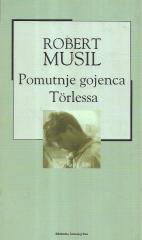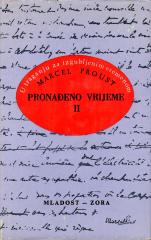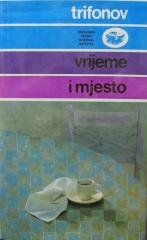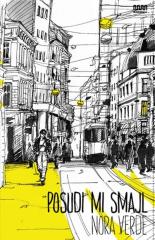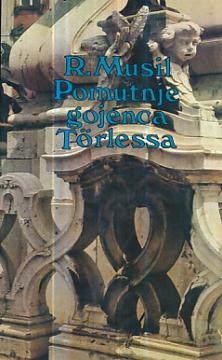
Pomutnje gojenca Törlessa / Tri žene
Robert Musil's The Confusions of the Young Törless (1906) and Three Women (1924) are works that explore the psychological depths, moral dilemmas, and internal conflicts of the individual, characteristic of Musil's analytical prose.
The Troubles of the Young Törless, Musil's debut novel, follows the young Robert Törless, a student at a military academy in Austria-Hungary. At the boarding school, Törless witnesses the cruel abuse of his classmate Basin by his friends, Beineberg and Reiting. Rather than resisting, Törless is fascinated by the power dynamics, sadism and moral abyss that lead him into introspection about his own sexuality, identity and the limits of morality. The novel, written in a precise, introspective style, explores themes of adolescence, authority and moral indifference, anticipating Musil's later philosophical depth. Törless eventually leaves school, unable to resolve his inner turmoil, making the work an early example of modernist literature.
Three Women consists of three novellas – Grigia, The Portuguese Woman and Tonka – that explore relationships between men and women, focusing on emotional and existential complexity. In Grigia, a man escapes to a rural idyll, but his relationship with a peasant woman leads to a tragic outcome. The Portuguese Woman depicts a nobleman whose love for a mysterious woman reveals spiritual depths. Tonka explores the doubt and misunderstanding of a man's relationship with a simple girl. All three stories, written in Musil's lyrical and analytical style, question love, alienation, and the unknowable nature of human relationships.
Both works reflect Musil's ability to combine psychological introspection with philosophical questions, making them key works of modern literature.
Two copies are available
